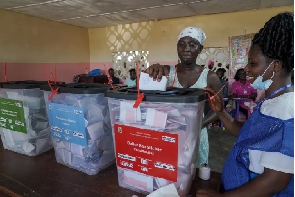Liberians will vote on Tuesday in a run-off election between President George Weah and former Vice President Joseph Boakai after a fiercely fought first round in which neither was able to score over 50 percent of the vote to secure an outright victory.
Football icon Weah, 57, led the first round in October, gaining 43.83 percent of the vote, and Boakai had 43.44 percent.
Boakai, 78, is a political veteran who from 2006 to 2018 was deputy to Ellen Johnson Sirleaf, Africa’s first elected female head of state.
Analysts say the thin margin of votes between them – just 7,126 votes out of almost two million votes – and the absence of a strong third candidate, means the round will also be very competitive.
The 2023 election has been a rematch of the vote in 2017 when Weah won with over 61 percent.
This is the country’s fourth post-war presidential election but the first one without the presence of the United Nations mission which previously provided support to the country’s elections commission.
Analysts say the election is a referendum on the ruling party’s stint in power so far.
Some voters have become disenchanted with Weah’s performance, particularly on corruption, high rate of youth unemployment, food inflation and general economic hardship. He fired his chief of staff and two other senior officials after the United States imposed sanctions on them for corruption.
Ruling party supporters say a new law in July 2022 granting the anticorruption commission prosecutorial power, is evidence of the administration’s fight against corruption. However, opponents point out that two of the officials sanctioned by the US in 2022 ran for parliamentary seats on the platform of the ruling party.
Weah has blamed the coronavirus pandemic and the consequences of the Russia-Ukraine war for failure to deliver on economic targets.
The removal of subsidy on rice, a major staple in the country, led to a subsequent increase in its price and opposition-led protests in December 2022. But even before then, a 2019 wage harmonisation exercise reduced the salaries of government employees.
Africa News of Monday, 13 November 2023
Source: aljazeera.com

















